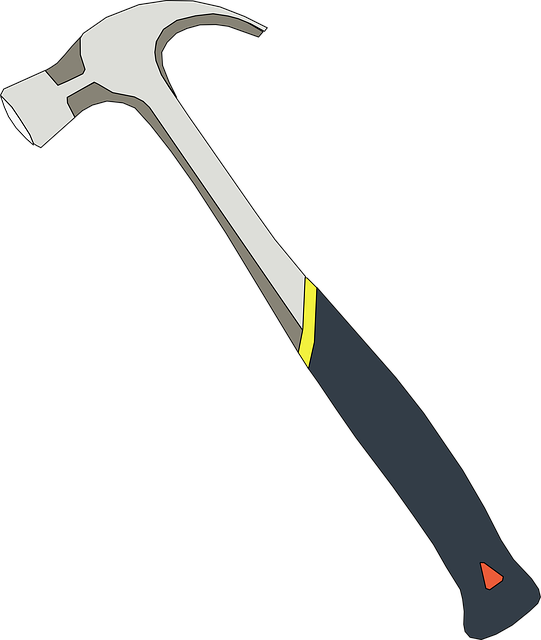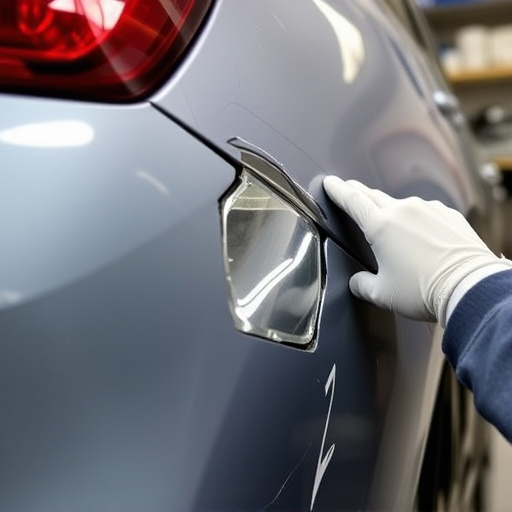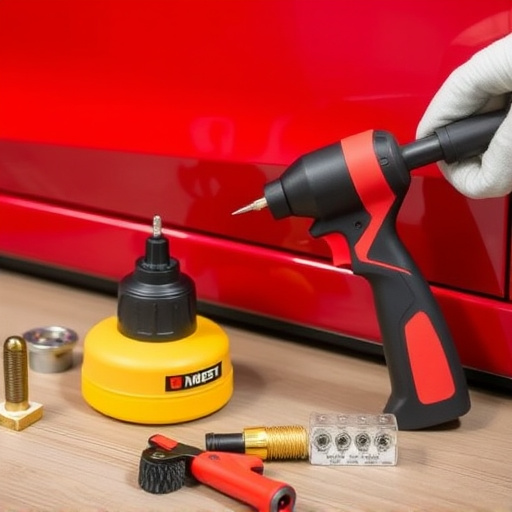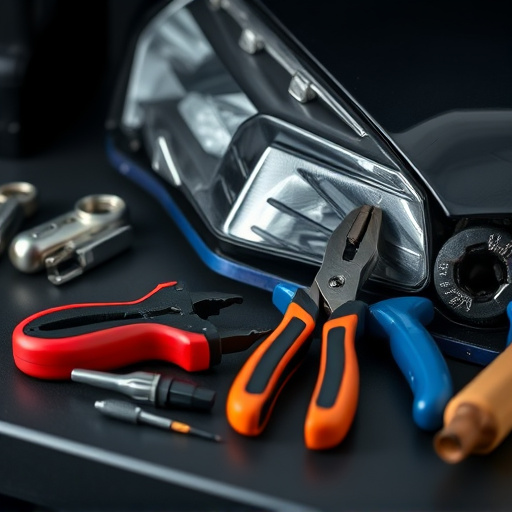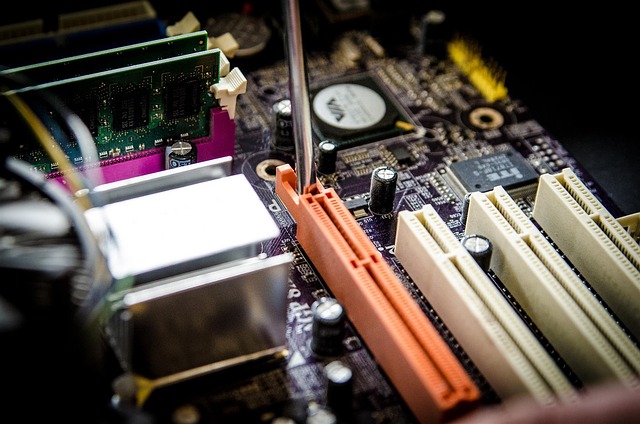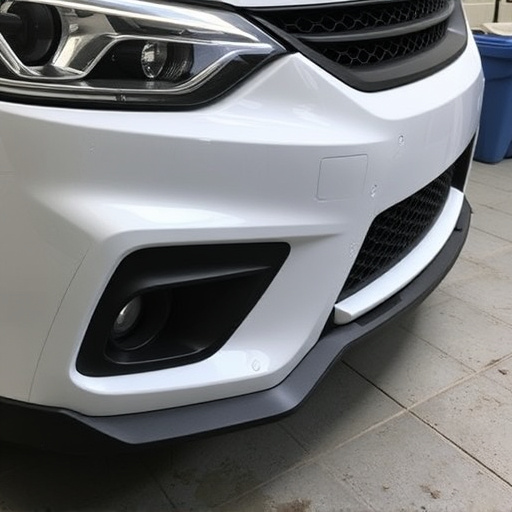Auto repairs significantly vary in duration, from swift one-hour services like oil changes to complex processes taking over a week. Key categories include auto frame repair (3-7 days) and vehicle paint repair (3-5 business days). Routine servicing, such as tire rotations, completes under an hour. Repair completion timelines depend on damage severity, part availability, technician skill, and workshop efficiency. Reputable shops typically finish standard repairs in a few hours to a day, while intricate work may take several days or weeks. Understanding these timelines is crucial for realistic planning and expectations.
In today’s world, understanding the average repair completion timeline for common auto repairs is crucial for every vehicle owner. This comprehensive guide delves into the various categories of auto repairs and their respective timelines, shedding light on what to expect during service visits. By exploring factors influencing repair speed and setting realistic expectations, you’ll gain valuable insights into your vehicle’s recovery time, empowering you to make informed decisions regarding its upkeep.
- Understanding Common Auto Repair Categories and Their Timelines
- Factors Affecting Repair Completion Speed
- Setting Realistic Expectations for Your Vehicle's Recovery Time
Understanding Common Auto Repair Categories and Their Timelines
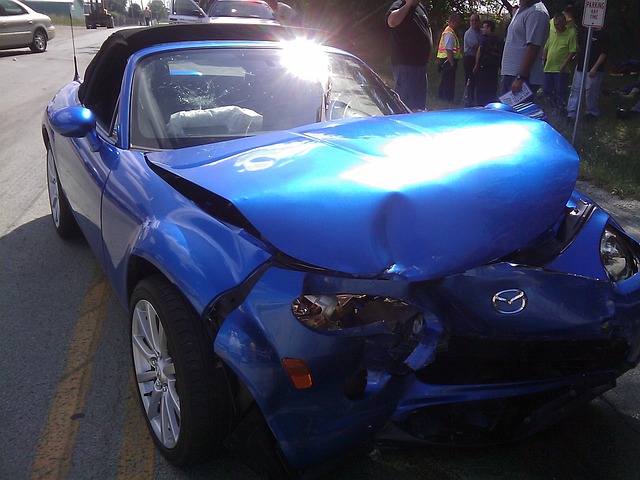
Auto repairs can be categorized into several common types, each with its own unique repair completion timeline. Understanding these categories and their respective timelines is crucial for setting realistic expectations when bringing your vehicle to an automotive body shop or dealing with auto frame repair needs.
Among the most common repairs are auto frame repair, which involves correcting structural damage and ensuring the safety and integrity of the vehicle. This type of repair typically takes a bit longer due to the meticulous work required, often ranging from several days to over a week depending on the severity of the damage. Vehicle paint repair is another frequent need, involving not just fixing chips or scratches but also restoring the vehicle’s exterior finish. Depending on the extent of the repainting, this process usually takes around 3-5 business days. Simple yet crucial maintenance tasks such as oil changes and tire rotations fall under routine servicing, with most completing in less than an hour.
Factors Affecting Repair Completion Speed
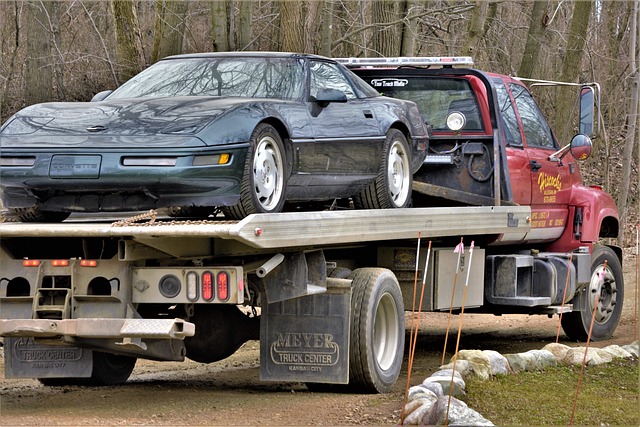
The average repair completion timeline can vary widely depending on several factors unique to each vehicle and the specific auto repair services being performed. While some common repairs may take just a few hours, more complex auto body work could extend the process to several days or even weeks.
Several elements influence these timelines. The severity of the damage is a significant factor; minor dents or routine maintenance tasks will obviously take less time than extensive structural repairs or complete vehicle overhauls. The availability of replacement parts and their quality also play a crucial role, as does the skill and efficiency of the technicians working on the vehicle. In a vehicle body shop, well-organized processes and an adequate supply of tools can significantly enhance repair completion speed.
Setting Realistic Expectations for Your Vehicle's Recovery Time

When it comes to auto repairs, understanding the expected repair completion timeline is essential for setting realistic expectations. Every vehicle repair, whether it’s a simple oil change or a more complex engine issue, varies in duration depending on several factors. These include the nature of the problem, availability of parts, and skill level required for the fix. It’s crucial to communicate openly with your auto body shop or mechanic regarding these variables to avoid misunderstandings.
At many reputable body shop services, standard repairs can often be completed within a few hours to a day. However, more intricate work might take several days or even weeks, especially if specialized parts need to be ordered. Staying informed about these timelines allows you to plan accordingly, ensuring your vehicle’s recovery time aligns with your needs and daily routines without any unpleasant surprises.
Knowing the average repair completion timelines for common auto repairs can empower vehicle owners to better understand and manage their car care. By considering factors like complexity, part availability, and workshop capacity, you can set realistic expectations for your vehicle’s recovery time. This knowledge allows for more effective planning and reduces unnecessary stress when facing automotive repairs. Remember, understanding these timelines is a key step in navigating the auto repair process efficiently.

